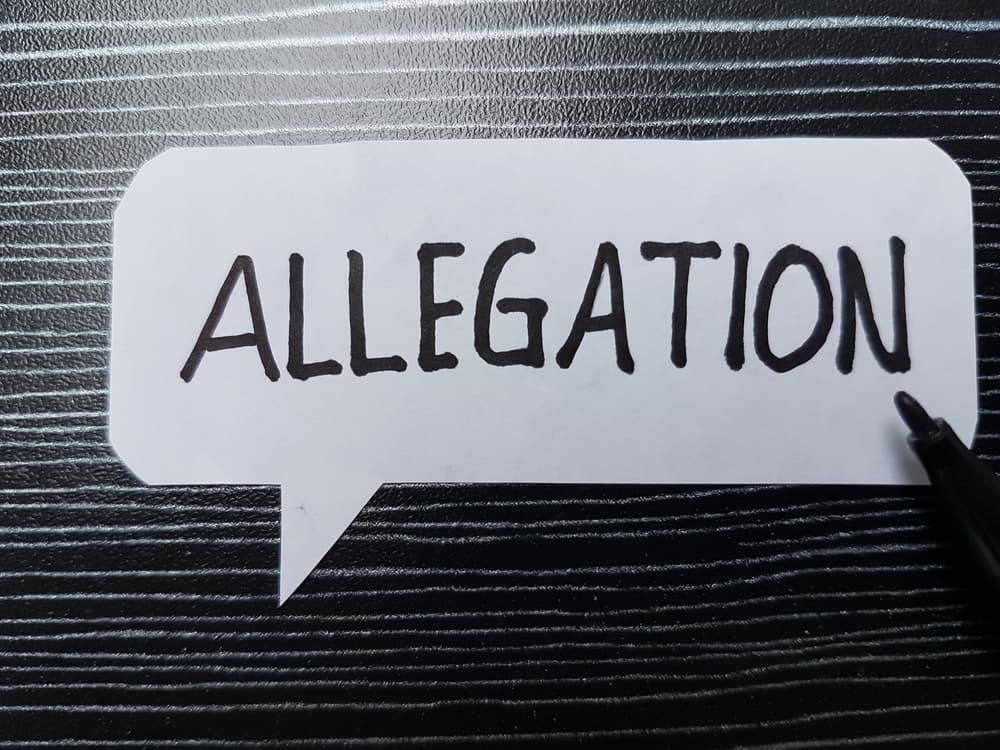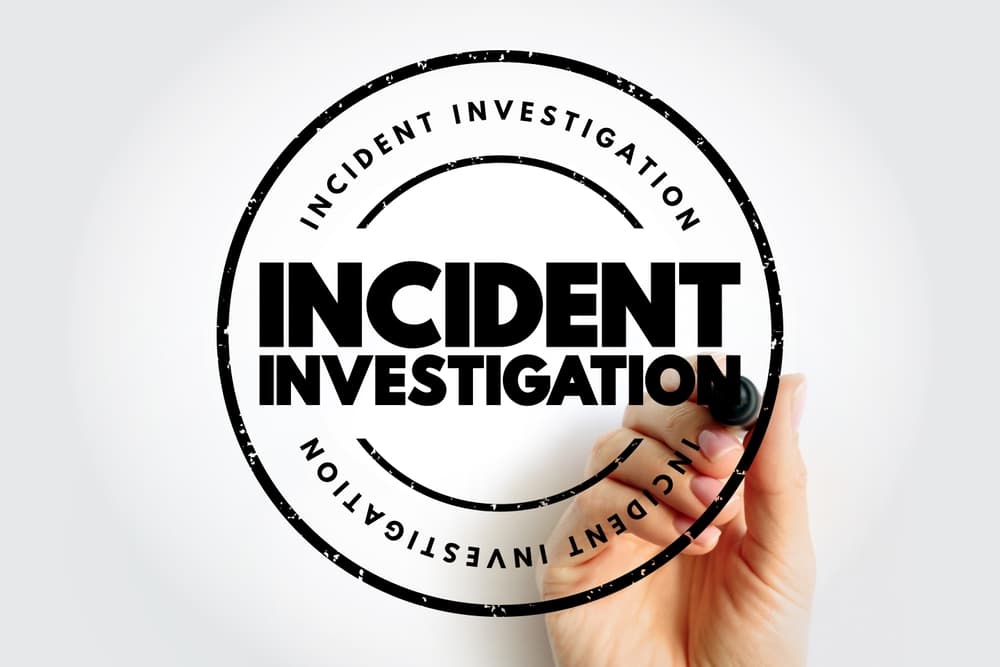Responding to Employee Allegations: A Legal Guide for Dental Employers
As a dental practice owner, you strive to create a positive and productive work environment for your employees. However, allegations of misconduct, discrimination, or employee mistreatment can disrupt even the most pleasant workplaces.
Facing such accusations is never easy, but how you respond can have significant legal and reputational consequences for your practice. The key is to take every employee complaint seriously while protecting your rights as an employer.
To overcome these challenging situations, consult an experienced dental lawyer who can advise you on the appropriate steps to investigate and resolve employee allegations.
Why Do Employee Allegations Arise?

Employee allegations can stem from a wide range of issues in the dental workplace, such as:
- Discrimination or harassment based on protected characteristics like race, gender, age, or disability
- Earnings and hour violations, including unpaid overtime, meal breaks, or minimum earnings
- Unsafe working conditions or inadequate training and equipment
- Retaliation for reporting misconduct or exercising legal rights
- Breach of employment contract terms
- Failure to accommodate medical or religious needs
- Wrongful termination or discipline
Sometimes, employee allegations may be baseless or stem from simple misunderstandings. However, it’s a mistake to automatically dismiss a complaint as frivolous. Even if you believe an employee’s allegation is meritless, you have a legal obligation to investigate it promptly and thoroughly.
Ignoring or mishandling employee complaints can expose your dental practice to costly legal claims, such as:
- Employment discrimination or wrongful termination lawsuits
- Actions for back pay and penalties for income and hour violations
- Workers’ compensation claims for workplace injuries
- Breach of contract disputes
- Complaints to government agencies like the Equal Employment Opportunity Commission (EEOC) or state labor boards
Consulting with a dental attorney early on can help ensure you handle employee complaints in full compliance with applicable laws and in a manner that protects your practice.
What Should You Do When an Employee Makes an Allegation?
When an employee comes to you with a complaint or allegation, remain calm, professional, and objective. Avoid getting defensive, arguing with the employee, or making snap judgments about the situation.
Instead, follow these general steps:
Listen Carefully to the Employee’s Concerns
Give the employee your full attention and allow them to share their perspective without interruption. Ask clarifying questions to ensure you understand the specific allegations and the basis for the employee’s complaint. Express your commitment to taking the matter seriously and investigating it thoroughly.
Assure the Employee There Will Be No Retaliation
Ensure to the employee that you prohibit retaliation against individuals who report concerns in good faith. You will treat the complaint as confidentially as possible while conducting a fair investigation. Encourage the employee to report any perceived retaliation so you can address it promptly.
Consult With a Dental Lawyer
Before taking any further action, contact a dental lawyer for guidance on how to proceed. The lawyer can assess the nature and severity of the allegations and develop an appropriate investigation plan. They can also advise you on any immediate steps needed to ensure your employees’ and patients’ safety and well-being.
Conduct a Prompt, Thorough, and Impartial Investigation
Work with your dental lawyer to investigate the employee’s allegations as quickly and discreetly as possible. Who should conduct the investigation will depend on the circumstances, but it’s generally advisable to have someone who is not directly involved in the allegations and can be objective. This may be the practice owner, a manager, or an outside investigator.
Communicate With the Parties Involved
Keep the complaining employee and any accused individuals apprised of the status of the investigation while maintaining confidentiality. If the investigation uncovers wrongdoing, follow your practice’s disciplinary policies and consult your dental lawyer on the appropriate corrective actions. Be sure to document any remedial steps taken.
Follow Up With the Complaining Employee
Notify the employee complaining about the investigation’s findings and any actions taken. Reiterate your commitment to maintaining a safe and professional work environment. Continue to monitor the situation to ensure no further misconduct or retaliation occurs.
By taking these steps with the guidance of a dental lawyer, you can demonstrate your practice’s good faith efforts to address employee allegations and prevent legal disputes from arising.
Investigating Employee Allegations: Best Practices

A fair and thorough investigation shows employees that you take their concerns seriously and helps you make sound decisions to resolve workplace problems. It can also provide a strong defense against any legal claims arising from the situation.
Some key best practices for conducting investigations include:
Maintain Confidentiality.
Emphasize to all parties involved in the investigation that you will keep the matter as confidential as possible, disclosing information only to those with a legitimate need to know. Failing to keep employee complaints confidential can lead to privacy violation claims, defamation lawsuits, or damage to staff morale and trust.
Determine Appropriate Remedies
Work with a dental attorney to determine the appropriate disciplinary actions and corrective measures if the investigation reveals misconduct. Consider factors such as the severity and frequency of the offense, the employee’s disciplinary history, and any aggravating or mitigating circumstances. You should design any remedial steps to stop the misconduct, prevent future incidents, and restore any harm done.
Document the Process and Results
Keep detailed records of every step in the investigation process, including interviews, evidence gathered, and conclusions reached. Having thorough documentation can provide a solid defense against any legal claims challenging the adequacy of your investigation or the basis for your employment decisions.
Throughout the investigation process, it’s wise to work closely with a dental lawyer who can help ensure you follow all applicable laws and protect your practice from liability.
Can You Fire an Employee for Making a False Allegation?
In some cases, a dental practice’s investigation of an employee complaint may reveal that the allegation was deliberately fabricated or made in bad faith. This can be incredibly frustrating for employers, who may feel like they wasted time and resources looking into a baseless accusation.
However, employers must be very cautious about disciplining or terminating an employee for making a false allegation. Different federal and state laws protect employees from retaliation for reporting perceived misconduct or exercising their legal rights, even if the underlying complaint is not substantiated.
For example:
- Title VII of the Civil Rights Act prohibits retaliation against employees complaining about discrimination, even if the claim is ultimately unfounded.
- The Occupational Safety and Health Act (OSHA) prohibits retaliation against employees who report unsafe working conditions, even if no OSHA violation occurs.
- State workers’ compensation laws prohibit firing employees for filing workers’ compensation claims, even if the claims are denied.
- Many states have whistleblower laws that protect employees who report illegal activities, even if the report is unsubstantiated.
To avoid retaliation claims in these situations, you must show that the employee’s complaint was made in bad faith or with malicious intent rather than being inaccurate or unproven. You may need clear evidence that the employee fabricated the allegation, such as contradictory statements, witness testimony, or documents disproving the complaint.
Contact a Respected Dental Lawyer Today
Don’t wait until an employee allegation escalates into a full-blown legal crisis to seek counsel from a dental attorney. The earlier you obtain legal guidance, the better your chances of resolving the complaint quickly, fairly, and with minimal disruption to your practice.
